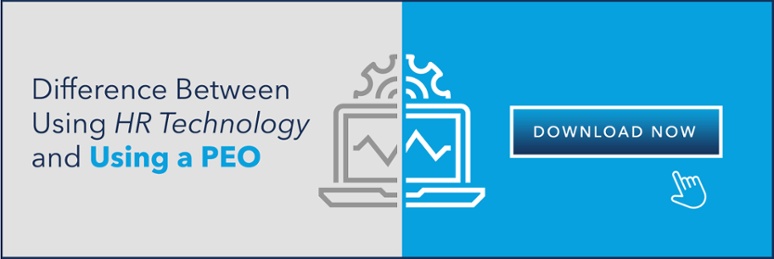.jpg)
Technology has always been a double-edged sword for businesses. On the one hand, it can automate repetitive tasks and free up employees for more creative work. On the other hand, it can introduce new complexities and obstacles that decrease efficiency.
The key is finding the right balance to maximize productivity in the long run.
During the adoption process, it is crucial to keep in mind that there will be a slight decrease in productivity. This is expected as employees learn and get comfortable with the new technology.
Technology can be a powerful tool to help businesses increase efficiency. However, it is essential to consider how it will change workflows and processes before adoption. Even the best technology will result in a decrease in productivity during the adoption phase.
Ultimately, the technology's long-term benefits must outweigh the short-term decrease in productivity. Otherwise, HR technology will do more harm than good.
HR Technology Features that Promote Productivity
There are a variety of HR technology features that can help promote productivity. The right HR technology can make a big difference, from automating repetitive tasks to cutting out the middleman. However, one feature stands above others in importance: integration.
Integrating Tasks
One of the most critical features of HR technology is the ability to integrate different modules. This can be anything from payroll and time & attendance to employee onboarding and benefits enrollment
For example, integrating time & attendance with payroll means there is no need to re-enter data and fewer errors.
Integrating time & attendance with managerial reports enables employers to review employee punctuality and adjust employee schedules.
Integrating payroll with managerial reporting enables employers to review employees' payroll without tasking HR.
Going Paperless
Moving to a paperless, digitized system improves productivity in the long run. There are a few reasons for this:
For instance, using HR technology to administer open enrollment is much quicker and easier than using paper forms. This saves time for both employees and HR professionals.
Second, the electronic delivery of employee handbooks is much more efficient than handing out paper copies. This saves time and money.
Also, it helps remove paperwork trail from onboarding a new employee. Onboarding a new employee can be a time-consuming process. A lot of paperwork needs to be completed, and it can be challenging to keep track of everything. HR technology can help to remove the paperwork from onboarding a new employee.
By using HR technology, businesses can digitize the onboarding process. This means that all the paperwork can be completed online and stored in a central location. This makes it much easier to keep track of everything and saves time.
Cutting Out the Middleman
Another critical feature of HR technology is the ability to cut out the middleman. Some activities do not require HR as a middleman. For example, employees may take up HR's time with questions about their benefits plan. HR technology can help answer these questions without needing HR to be involved.
By using HR technology, businesses can provide employees with self-service options. This means that employees can find answers to their questions without needing to contact HR. This saves time for both employees and HR professionals.
Some other ways that the middleman gets cut out:
- Employees can view and print pay stubs and their W2
- Employees can check the status of their benefits
- Employee can request PTO directly from their manager.
Empowering Managers
A "manager self-service portal" lets employers review past payrolls, employee information, and PTO requests. This saves time and allows managers to review this information on their own time.
With the right HR technology, all employee information is put in a single place. It can be used to store all employee information in a central location to save time and ensure that it is easily accessible when needed.
Questco's HR Technology Increases Post-Adoption Efficiency
Overall, HR technology can be a powerful tool to help businesses increase efficiency. However, even the best technology will result in a decrease in productivity during the adoption phase.
If you are looking for a robust HR technology that will help you boost your long-term productivity, look no further than Questco's HR technology.
This technology has all the features required to increase productivity in the long run.
Even though productivity will temporarily decrease during the adoption period, Questco's HR technology increases productivity in the long run.



